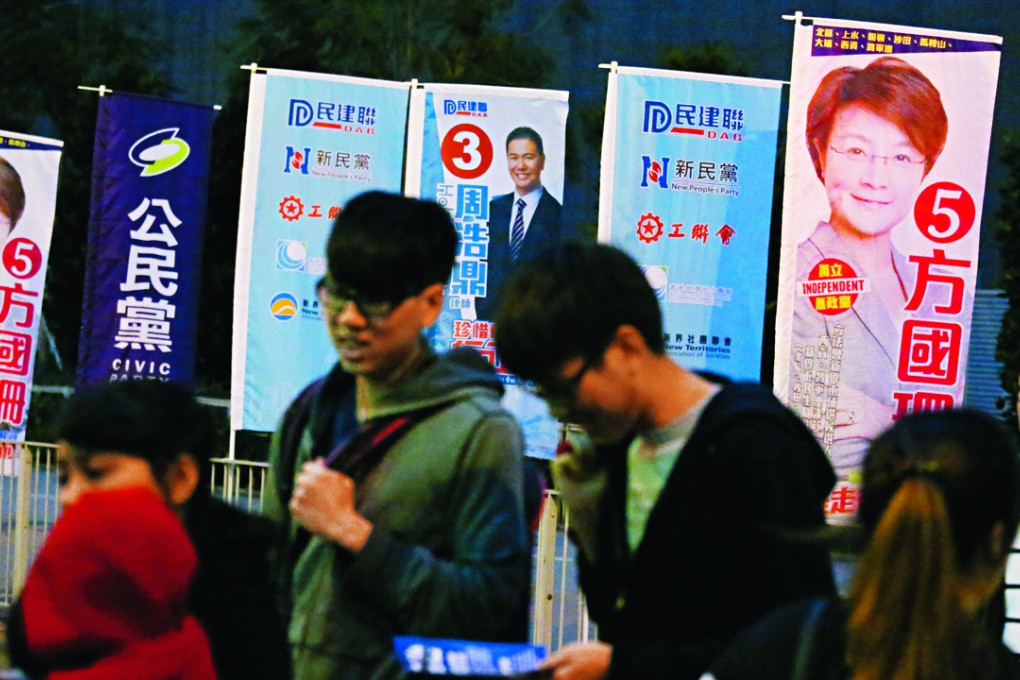Spoiling for a fight: Hong Kong Indigenous candidate Edward Leung upsets the apple cart
The rise of the localist camp threatens the position of the pro-establishment and pan-democrat camps in New Territories East

Edward Leung Tin-Kei was late for his first election rally on the last day of campaigning.
It was tempting to think that he was not taking his debut as a politician stumping for votes too seriously. But by the time he was done last night, he had held 15 rallies, zig-zagging all over the New Territories East constituency.Pollsters and pundits knew better than to write off the candidate from Hong Kong Indigenous.
READ MORE: Why Hong Kong by-election today matters: rifts in two main blocs could make localists the big winners even if their man loses
The 24-year-old gained fame and notoriety after the Mong Kok riot three weeks ago, which his group allegedly orchestrated. And the localism campaign he has been spearheading became a key focus in yesterday’s by-election.
Some political analysts are sensing the emergence of localism as a new force in the political landscape of Hong Kong that has traditionally had only two blocs since the 1997 handover.
While votes were still being counted at press time, few believed Leung had what it took to win a Legislative Council seat this time.
That, however, was never his endgame.